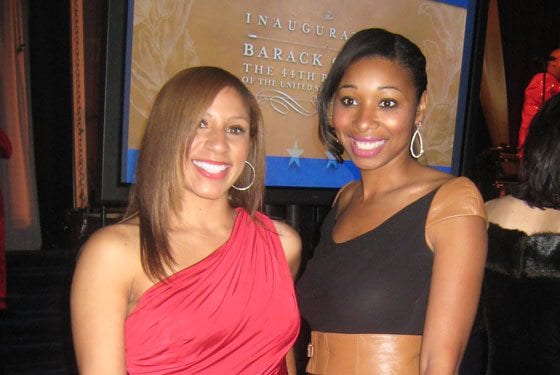
WASHINGTON — Inaugurations typically set new governments in motion, ushering in a fresh president along with fresh ideas. But the celebration in the nation’s capital last week seemed as much about an ending as a beginning.
The ending on the minds of so many who came from so far was not the close of an old administration as it exited the banquet of power with mutterings about the rushed service and lack of respect, but something else, larger even than politics or power.
The excitement on the streets, in the parks, bars, restaurants, salons, living rooms, airports, banquet halls and Metro stations — any place where more than one were gathered in his name — went largely unnamed but was widely and intensely felt. There was near-Biblical faith that the Jordan had finally been crossed, that Moses was looking down from the mountaintop on the other side as his people came to the journey’s end.
In the lead-up to the inauguration of President Barack Hussein Obama, the language of destiny, fulfillment and closure filled the speeches and conversations of Washington.
On the steps of the Lincoln Memorial during the “We Are One” concert two days before the inauguration, speaker after speaker invoked the dream of Dr. Martin Luther King Jr. as destiny fulfilled rather than deferred. RandB anthems like Sam Cooke’s “A Change Is Gonna Come,” sung by Bettye LaVette and Jon Bon Jovi, reinforced the theme of the passage coming to a close.
“It’s been a long time comin’,” they sang, echoing Obama’s speech on election night.
The throngs around the Reflecting Pool watched footage of Marian Anderson singing on the marble steps of the memorial in 1939 after being shut out of Constitution Hall. The images stirred hope, less for the contralto’s brave stand against injustice than for the seeming impossibility that any such indignity could ever again be visited upon an American artist because of the color of her skin.
Obama’s arrival in the Oval Office signaled the end of many forms of disbelief — especially a disbelief that the day would ever arrive when a black man would serve as commander in chief and leader of the most powerful nation on the planet.
From Olympic decathlon champion Rafer Johnson shaking his head in the living room of Ethel Kennedy’s home to actor Samuel L. Jackson doing the same as he shouldered his way through the crowds at the Capitol the next morning, the message was repeated over and over: “I never thought I’d live to see the day …”
Tuskegee Airmen in wheelchairs and borrowed coats said it. So did icons of the civil rights movement, like U.S. Rep. John Lewis, his scalp still bearing the scars of Selma.
It was heard on the marble floors of Union Station as thousands joined to watch the president and first lady dance to “At Last,” a tired Marine Band coaxing the minor chords from tubas and trombones in the last ball appearance of the night for the newly minted first couple.
The next days would have troubles of their own — war in the Mideast, rising unemployment, vexatious bailout plans, sniping backbenchers — but for one glorious moment on a glittering Washington day, Obama Nation rejoiced in the relief of “At Last” and the comfort of a journey’s end.






